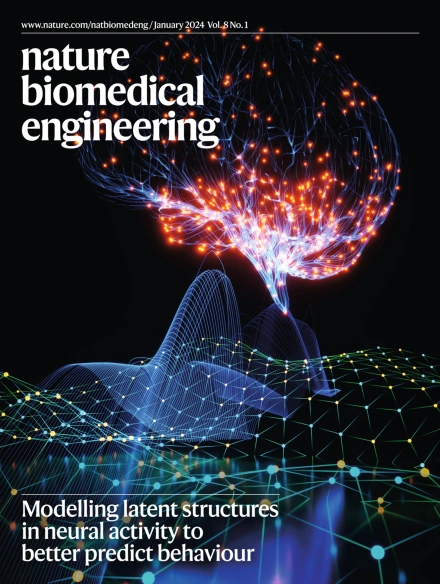A collaborative large language model for drug analysis.
IF 26.8
1区 医学
Q1 ENGINEERING, BIOMEDICAL
引用次数: 0
Abstract
Large language models (LLMs), such as ChatGPT, have substantially helped in understanding human inquiries and generating textual content with human-level fluency. However, directly using LLMs in healthcare applications faces several problems. LLMs are prone to produce hallucinations, or fluent content that appears reasonable and genuine but that is factually incorrect. Ideally, the source of the generated content should be easily traced for clinicians to evaluate. We propose a knowledge-grounded collaborative large language model, DrugGPT, to make accurate, evidence-based and faithful recommendations that can be used for clinical decisions. DrugGPT incorporates diverse clinical-standard knowledge bases and introduces a collaborative mechanism that adaptively analyses inquiries, captures relevant knowledge sources and aligns these inquiries and knowledge sources when dealing with different drugs. We evaluate the proposed DrugGPT on drug recommendation, dosage recommendation, identification of adverse reactions, identification of potential drug-drug interactions and answering general pharmacology questions. DrugGPT outperforms a wide range of existing LLMs and achieves state-of-the-art performance across all metrics with fewer parameters than generic LLMs.一种用于药物分析的协作大型语言模型。
大型语言模型(llm),如ChatGPT,在理解人类查询和生成具有人类流畅性的文本内容方面有很大帮助。然而,在医疗保健应用程序中直接使用法学硕士面临几个问题。法学硕士容易产生幻觉,或者是看似合理、真实但实际上不正确的流畅内容。理想情况下,生成内容的来源应该易于追踪,以便临床医生进行评估。我们提出了一个基于知识的协作大语言模型,DrugGPT,以提供准确,循证和忠实的建议,可用于临床决策。DrugGPT结合了多种临床标准知识库,并引入了一种协作机制,该机制可以自适应地分析查询,捕获相关知识来源,并在处理不同药物时将这些查询和知识来源对齐。我们从药物推荐、剂量推荐、不良反应识别、潜在药物相互作用识别和回答一般药理学问题等方面对拟议的DrugGPT进行评估。与普通llm相比,DrugGPT在所有指标上的性能都优于现有的llm,参数更少。
本文章由计算机程序翻译,如有差异,请以英文原文为准。
求助全文
约1分钟内获得全文
求助全文
来源期刊

Nature Biomedical Engineering
Medicine-Medicine (miscellaneous)
CiteScore
45.30
自引率
1.10%
发文量
138
期刊介绍:
Nature Biomedical Engineering is an online-only monthly journal that was launched in January 2017. It aims to publish original research, reviews, and commentary focusing on applied biomedicine and health technology. The journal targets a diverse audience, including life scientists who are involved in developing experimental or computational systems and methods to enhance our understanding of human physiology. It also covers biomedical researchers and engineers who are engaged in designing or optimizing therapies, assays, devices, or procedures for diagnosing or treating diseases. Additionally, clinicians, who make use of research outputs to evaluate patient health or administer therapy in various clinical settings and healthcare contexts, are also part of the target audience.
 求助内容:
求助内容: 应助结果提醒方式:
应助结果提醒方式:


